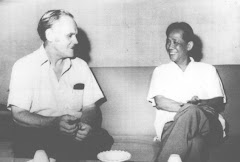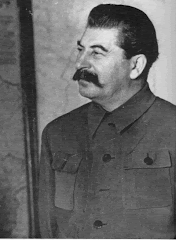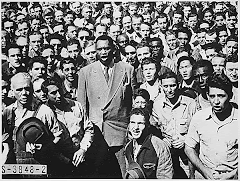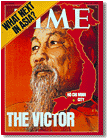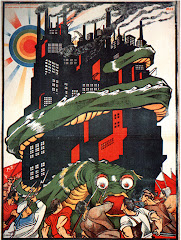--- En date de : Mer, 23.6.10, Communist Party of Canada
De : Communist Party of Canada
Objet : CP of Canada Statement on the G8/G20 Summits
À : "Recipient List"
Date: mercredi 23 juin 2010 12 h 06
Re: G8/G20 Summits to be Held in Toronto
Dear comrades and Friends,
As you are well aware, the G8/G20 Meetings are being held in Toronto this week. We are enclosing the statement issued by the Central Executive of our Party with respect to these imperialist-dominated ‘Summits”. For those of you who plan to be in the Toronto area during the G20, we also enclose a mail-out regarding the June 26th People First!” march and rally.
Comradely yours,
Central Office,
Communist Party of Canada
___________________________________
G8/G20: Fight for a Real Alternative
to the new Capitalist “Consensus”
On the eve of the G8/G20 meetings, mass labour and democratic mobilizations are building in Southern Ontario and across Canada to protest this wasteful, security obsessed extravaganza. The Communist Party of Canada salutes this resistance and takes its rightful place alongside workers, students, women, Aboriginal peoples and social activists in denouncing these summits which aim to hammer out a strategic line among the ruling imperialist states and international finance capital on how best to advance their shared interests, and then present their agenda as a fait accompli to the world’s peoples.
This set of G summits is particularly important because global capitalism continues to be mired in a profound economic and structural crisis, notwithstanding the soothing media reports that the ‘worst is behind us’ and that recovery is well under way. Saving capitalism and restoring profit margins are the main concerns of these ‘leaders’, rather than solving the burning problems afflicting the world today. That is why issues like climate change, the world food crisis, ending wars of occupation and rampaging military spending, and the worsening problem of “under development”, especially in Africa, have all be swept off the agenda of the G8/G20 meetings.
Bank of Canada governor Mark Carney admitted as much this June when he declared that the Summits must focus attention on the continuing crisis, especially in Europe , which has had a serious “impact on financial conditions ... [and] it’s not over.” He then parroted the World Bank which earlier raised the possibility of a “second recession affecting most of the industrialized world if governments don’t deal successfully with the unfolding European debt crisis.”
In fact, the leading imperialist countries, including Canada , want to use the Summits to showcase their determination to impose further social and economic austerity on all states and peoples, as the only viable solution to overcome the crisis. But this is a false ‘international consensus” one that serves the interests of finance capital, but which consigns the vast majority of the world’s working class and oppressed peoples to even more hardship and suffering.
In Europe , the Austerity agenda pushed by the European Union brass and the International Monetary Fund (IMF) is already having a devastating effect, especially on public sector workers, youth, and pensioners. Minimum wages are being slashed, social programs cut, and the retirement age extended for workers.
But this savage attack is being met by heroic resistance across the European continent, especially in Greece and Portugal where the left, Communist led unions and popular movements are mounting escalating general strikes and other forms of mass resistance to fightback against this anti social onslaught of Big Capital and its governments.
In Canada , we need to replicate the kind of militancy building in Europe, Latin America and elsewhere around the world. The right wing Harper government and their pro corporate provincial counterparts (both Conservative and Liberal) are also moving to deepen the assault on workers’ conditions, social programs, and democratic and equity rights. And they will succeed in pushing through these reactionary ‘reforms’, unless the labour and people’s forces move quickly to mount a militant, coordinated, Canada wide counter attack.
There is such a progressive alternative to this reactionary, pro capitalist ‘solution’, but it must go beyond, palliative demands to soften the impact. It must include sweeping measures which challenge the dominance of monopoly capital, such as the nationalization of the banks, the big energy monopolies, and other key sectors of our economy. These steps need to be combined with social measures like expanding access to healthcare, public and post secondary education, raising the minimum wage to $16/hour, reducing the workweek with no loss in take home pay, and improving public pensions. And with sweeping tax reform which would shift the burden from working people onto the corporations and the wealthy, and with an immediate withdrawal from the disastrous war of occupation in Afghanistan , along with a 50% cut in military spending which would save another $10 billion every year.
As we state in our May Day 2010 statement, “the big monopolies and banks want to make working people pay for the economic recovery through lower wages, higher unemployment, and huge cuts in social spending. We say: those who reap billions in profits must pay! Unite and fight for a fundamentally new direction, placing the needs of working people and our environment before corporate greed, [and for policies] based on peace and disarmament!”
Issued by the Central Executive Committee
Communist Party of Canada
June 2010
_______________________________
Protest the G20
this Saturday!
Dear friends and comrades,
Protests against the pro-corporate agenda of the G8/G20 Summits are already building, despite Harper’s attempt to ‘lock down’ Toronto and ‘lock out’ dissent. Whatever the diversity of these actions, they reflect various aspects of popular anger and the people’s demands for change – for peace, for protection of our environment, for jobs and living standards, for healthcare, education, pensions and social programs, and not least, for equality and democratic rights.
Of all the myriad events making place around Toronto leading up to and during the G20 meetings this coming weekend, the most important will be the “People First!” march and rally to be held on Saturday, June 26 at 1:00 pm, starting at Queen’s Park. This is because Saturday’s “People First!” march & rally will be the one event which brings together all the streams of protest into one united action – workers, environmentalists, Aboriginal peoples, anti-imperialist and anti-racism groups, youth & students, women’s, GLBT and equality activists, and other social movements.
A massive outpouring of opposition to the reactionary agenda of the imperialist world order is the worst nightmare for Harper, Obama, Cameron, Merkel, Sarkozy, Berlusconi and co. That is why the G20 organizers have unleashed a campaign of intimidation and fear-mongering to keep working people away from the streets, especially for the big rally on Saturday.
The best response or antidote to this anti-democratic campaign is for all of us – each one of us individually and collectively – to redouble our efforts to bring as many people as possible out for the big march and rally this Saturday!
The Communist Party of Canada , the Young Communist League, and all of our friends and comrades will be marching together in a contingent during the march and we cordially invite you to join and march with us! We will be assembling at 12:30 p.m. on the south side of Queen’s Park, close to College St where University Ave. turns into an oval road (see photo).
Bring your friends, family, neighbours and co-workers; your flags, placards (although we will have some on hand as well!) and noisemakers. See you there!
A Word About Tactics
As many of you have already heard, some groups have announced their intention to join the “People First!” march, but will attempt to split the march on route, taking some participants directly to the security perimeter, and possible confrontation with the police.
Even if well-intended, this is a wrong and divisive tactic in our opinion. The main political value and impact of the “People First!” action is to demonstrate the ‘all-in unity’ of the labour and people’s movements, notwithstanding whatever differences around specific policies our tactics exist within our ranks. To attempt to divide the people’s forces during this critical action would create confusion and acrimony, would send the wrong message, and would play into the hands of those who stand to benefit from such an overt display of division within the ranks of the labour/people’s resistance to the G20. For this reason, the Communist Party will abide by the route approved by the “People First!” organizers.
All Out for the “People First!” March and Rally!
See you Saturday!!!








